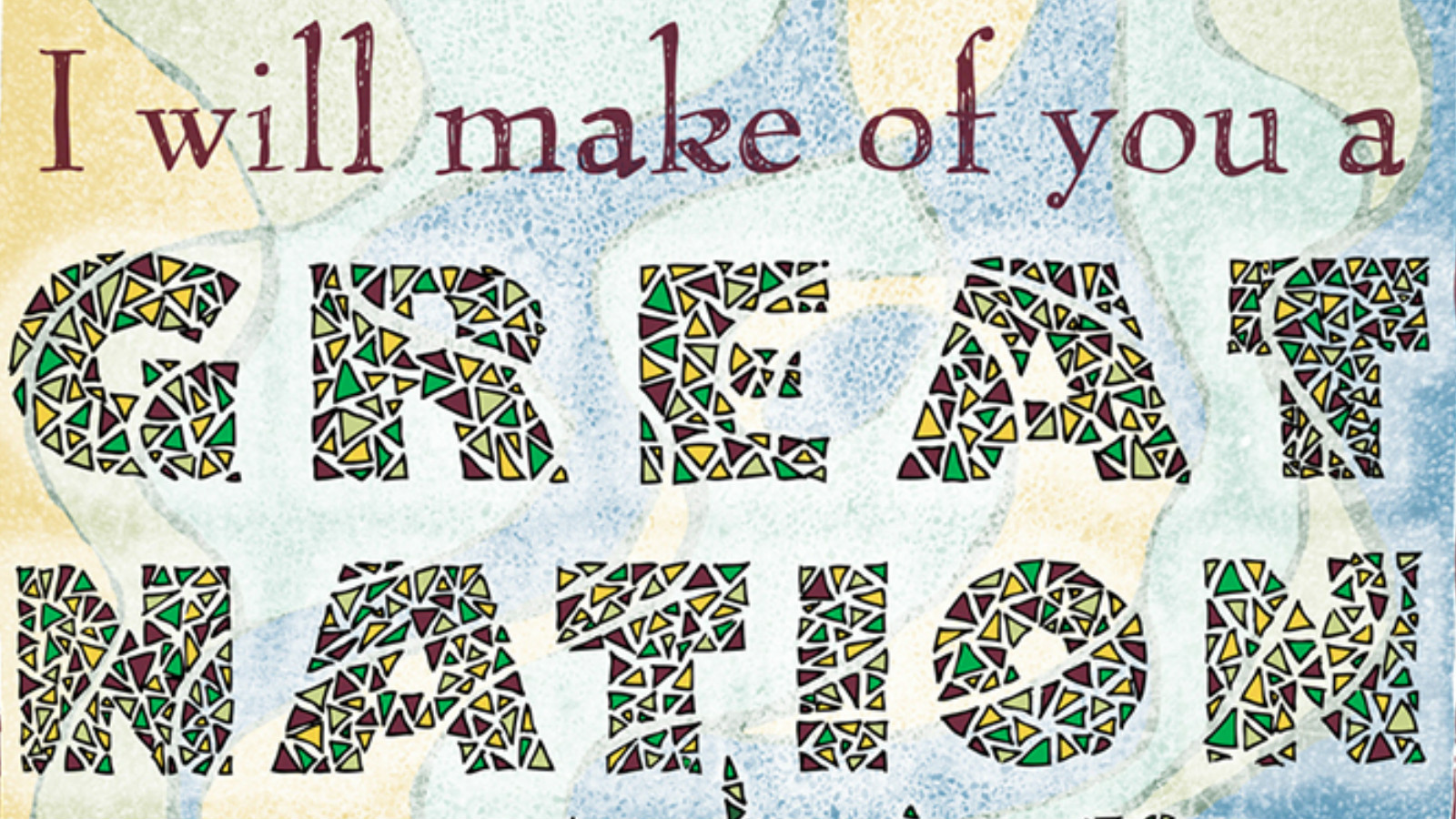Commentary on Parashat Lech-Lecha, Genesis 12:1-17:27
Lech-Lecha is best known as the Torah portion in which God first makes his promise to Abraham that he will be the father of a great nation. It means “go,” and God instructs both Abraham and Sarah to go to the land he will show.
That story is … nice, but when I read Lech-Lecha I’m always intrigued by the story of Abraham’s son Ishmael and Ishmael’s mother, Hagar. This story, particularly the banishment of Ishmael and Hagar at Sarah’s insistence in a later Torah portion, can be seen as a dividing point between Judaism and Islam. However, I’m wondering if we instead can see it as the unifying point of our faiths. Which, let’s be clear, can be hard to see.
The interactions between Hagar and Sarah are complex. Abraham is promised by God to become a father of a great nation, yet the two of them are old; Sarah has already started menopause, how is it possible for two as old as them to parent a nation? Out of desperation, perhaps, Sarah gives her handmaiden, Hagar, to Abraham so that a son can be born to Abraham. But, when Sarah sees Hagar is pregnant the plan doesn’t seem as great and she treats Hagar so harshly that Hagar flees.
Hagar eventually returns, not because she wants to, but because God makes a promise to her, that her son also will father a great nation. So should we as Muslims and Jews unite because God tells us to, just as God told Hagar? Perhaps. But, I don’t think it’s just that God has instructed Hagar to go back to Sarah, but that God has showed us that we must unite. The story could’ve been different. God could have let Hagar go with the promise of a great nation to her unborn son, but instead God brings the two women back together, uniting the complex family that is Hagar, Sarah, Abraham and their sons.
With your help, My Jewish Learning can provide endless opportunities for learning, connection and discovery.
There is so much that divides us, from race to religion to economic status. Quickly we can discern that someone is different from us, and for a variety of reasons we gravitate to people who are like us, usually because that’s what is most comfortable. We live in a time when it has been increasingly acceptable to point out the ways in which we are different; never in my lifetime has there been such an overt, pseudo-Christian, white nationalist fervor in our country.
Never has it been so imperative that we see beyond our differences and find places of overlap, places of complex unity. Unity, that on the surface, isn’t there. But, when you scratch the surface, like scratching back the theme of “go” in Lech-Lecha can be found. For instance, some Muslims fast on the 10th day of the first month of the Muslim calendar. Sound familiar? This fast day parallels the timing of Yom Kippur, the 10th day of the first month of the Jewish calendar year. When the prophet Mohammed noticed his Jewish neighbors fasting for Yom Kippur he required that his followers also fast on that day. This tradition lives on to this day. (Although because the Jewish and Muslim calendars are structured differently, these holidays don’t always coincide with each other.)
In another link between Jews and Muslims, Moses is mentioned in the Quran more than any other person— 135 times, compared to 67 times for Abraham and six for Mohammed. And the life and story of Abraham is described similarly in the Quran to how it is in the Tanach (Hebrew Bible).
This complex unity has deep roots in our Jewish tradition and specifically in this Torah portion. All three major monotheistic religions — Judaism, Islam and Christianity — see Abraham as their father. In the Jewish tradition it is Isaac who Abraham takes to sacrifice; in Islam it is Ishmael. From Ishmael we find the lineage of the people of Islam and from Isaac, our own Jewish lineage. God promises great nations from both children of Abraham, making the same covenant with both sons at different times.
Lech-Lecha clearly shows that Jews and Muslims are brothers, and often in liberal Jewish spaces we refer to Muslims as our “cousins.” Our ancestral matriarchs are different, but we share the same father in Abraham. Over the years the narrative has often been that Jews and Muslims are too different to be united, yet here we see pointed evidence in our text of not kumbaya-looks-good-for-a peace-event-unity, but factual, complex and familial unity. There is boundless possibility in this unity for greatness, acceptance, love and earth-shattering change if we could see beyond the small difference and listen to the words of this Torah portion.
Ishmael’s name means God listens, and our uniting Jewish prayer begins with the word Shema, “listen.” Maybe it’s time we did.
Shema
Pronounced: shuh-MAH or SHMAH, Alternate Spellings: Sh'ma, Shma, Origin: Hebrew, the central prayer of Judaism, proclaiming God is one.
Tanach
Pronounced: tah-NAKH, Origin: Hebrew, Hebrew Bible (an acronym for Torah, Nevi'im and Ketuvim, or the Torah, Prophets and Writings).



